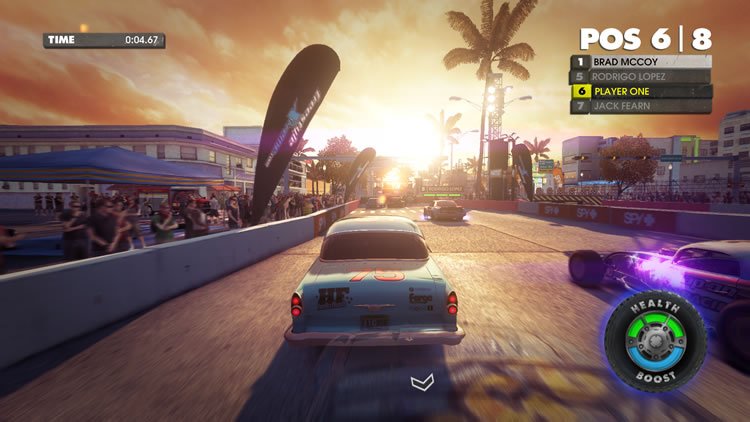
A subjective look at the A8-7600's gaming performance Kaveri is AMD's first APU to feature integrated graphics based on the latest generation of Radeon graphics cards. As we learned in our review of the A8-7600, even a cut-down version of this DirectX 11-class GPU can keep up with the latest blockbuster games. Battlefield 4, Batman: Arkham Origins, and Tomb Raider are all playable at a 1080p resolution. The frame rates aren't great -- around 25-30 FPS -- and the in-game detail settings need to be turned down to get the games running that well. But the action is smooth enough and the graphics are good enough to deliver an enjoyable experience, especially for so-called casual gamers with less refined tastes. Not bad for a $120 processor that can fit inside small-form-factor and all-in-one systems. The Tech Report
Ethical free-to-play game design (and why it matters) David Ogilvy, an important figure in the evolution of the ad business, once said "The consumer is not an idiot; she is your wife." He was responding, of course, to what he viewed as cynical and manipulative advertising; but in the F2P market, we -- not all of us, but certainly most -- are equally guilty of treating our customers as idiots; or worse, as sheep to be fleeced by manipulative and fundamentally unethical business practices. Or to put it another way, we have typically emphasized short-term monetization at the expense of long-term retention, risking annoying our players in order to improve short-term metrics. Our F2P businesses have, by nature and culture, been highly focused on the short term... Gamasutra
How much does it cost to make a big video game? You pay $60 for many of the new games you play, but how much does a blockbuster game cost to make? Although it is a seemingly simple question, it is actually incredibly difficult to answer. Of all the opaque video game industry questions, this is perhaps the most opaque. Many in the industry don't even know the budgets of games. It is not unusual for developer working on a big-budget game to have no idea of the game's budget. Publishers and developers almost never release information on budgets of their games, and publicly traded companies just combine all of their production costs in investor reports, giving little insight into individual game costs. Kotaku
The iPod of prison In early 2005, Josh Demmitt arrived at a federal prison camp, in Sheridan, Oregon, to serve a thirty-month sentence for starting a fire outside an animal-testing facility at Brigham Young University. The nineteen-year-old received a warm welcome from his fellow inmates, who greeted him with coffee and cigarettes, advice on procuring vegan meals, and a pocket AM/FM radio. The radio provided hours of welcome distraction for Demmitt, who had come from Sheridan’s adjoining detention center, where, he says, he spent weeks without a radio while confined to a small cell for at least twenty-three hours a day. The New Yorker
40 more maps that explain the world Maps seemed to be everywhere in 2013, a trend I like to think we encouraged along with August's 40 maps that explain the world. Maps can be a remarkably powerful tool for understanding the world and how it works, but they show only what you ask them to. You might consider this, then, a collection of maps meant to inspire your inner map nerd. I've searched far and wide for maps that can reveal and surprise and inform in ways that the daily headlines might not, with a careful eye for sourcing and detail. I've included a link for more information on just about every one. Enjoy. The Washington Post
Europe as mapped by tweets (colors = languages)

The secret developers: Wii U - the inside story I was there when Nintendo first pitched the Wii U to developers, I worked on the hardware extensively and helped to produce one of the better third-party titles. Now, as the fate of the hardware looks uncertain after a second Christmas of disappointing sales, I wanted to tell the story of what it was actually like to work with the console, and with Nintendo, and perhaps give some context to the mixed fortunes of the machine and its third-party titles. But first, let's go back to the beginning. The genesis of a new games console generally follows a standard pattern. Eurogamer
The Online Avengers One day last April, a 25-year-old named Ash smoked a cigarette in the garden of his London workplace and scrolled through the Twitter feed on his phone. He stopped at the headline "Who Failed Rehtaeh Parsons?" and clicked on the link, which took him to the website of The Chronicle Herald, a Canadian newspaper. The article was an example of the kind of story, about a mistreated and suffering teenager, that Ash spends a considerable portion of his life searching for online, the kind that makes him feel, as he puts it, "very rustled up." The NY Times
Wake up, Rosetta! It's being called "the most important alarm clock in the Solar System" -- this Monday, January 20, at 10:00 GMT (which is 5:00 a.m. for U.S. East Coasters like me) the wake-up call will ring on ESA's Rosetta spacecraft, bringing it out of hibernation after over two and a half years in preparation of its upcoming and highly-anticipated rendezvous with a comet. The wake-up will incite the warming of Rosetta’s star trackers, which allow it to determine its orientation in space. Universe Today
Stop trying to innovate keyboards. You're just making them worse I've written about my struggles to find a good PC laptop before. After literally years of searching, it looks like Lenovo has stepped up to the plate and finally created the machine I crave. The new ThinkPad X1 Carbon, a high-resolution, Haswell-equipped update to 2012's Ivy Bridge-based model looked just about perfect... if it weren't for one thing. The new X1 Carbon has what Lenovo is calling an "Adaptive Keyboard." Ars Technica